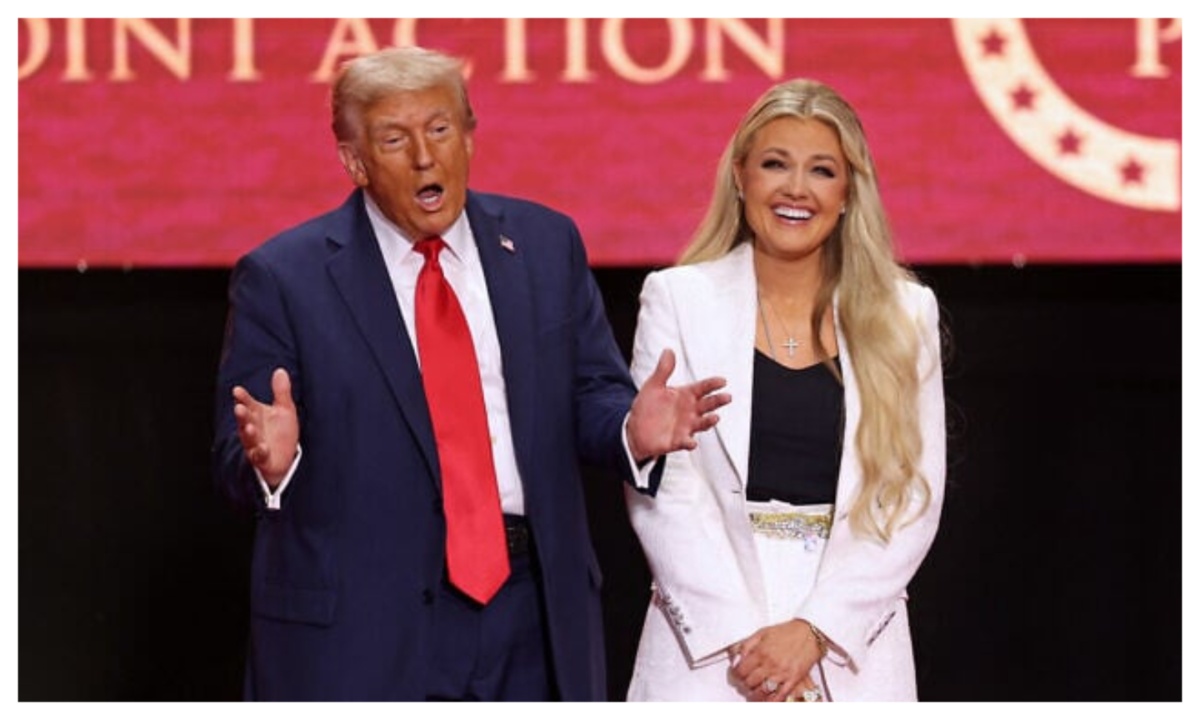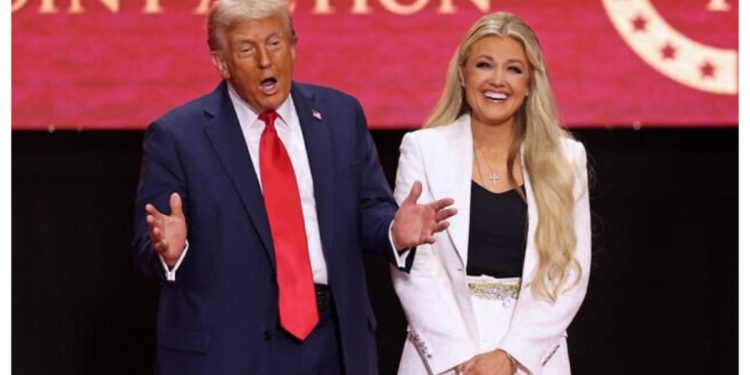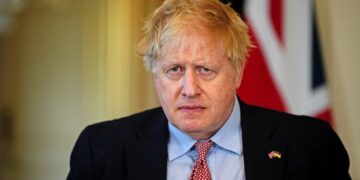Charlie Kirk’s funeral was never going to be ordinary. But few expected it to look less like a moment of grief and more like a rally stage. At State Farm Stadium, tens of thousands showed up to remember the 31-year-old conservative activist, but the mood was less mourning and more mobilization. Trump himself made sure of that.
The former president went beyond eulogizing Kirk. He turned him into a symbol, a “martyr” for American freedom, a “missionary” of liberty, and finally, in words that will no doubt resonate through conservative circles, “immortal.” That word alone carried weight, especially in a movement obsessed with legacy and survival. When Trump calls someone immortal, it’s never only about them, it’s about the movement, and about himself.

A Funeral or a Rally?
Looking at the service, it was hard to draw the line. Christian music blared for hours before speeches began. The crowd waved their hands like it was worship, but the chants sounded political. Vice President JD Vance carried Kirk’s casket in on Air Force Two. Cabinet members filled the front row. If you stripped away the flowers and black clothes, it felt like a campaign stop.
Even in death, Kirk was recast as a warrior. Conservative commentator Benny Johnson shouted, “Charlie Kirk is now a martyr. His power will only grow.” Florida Congresswoman Anna Paulina Luna compared him to George Washington, JFK, and Martin Luther King Jr. The message was very clear: don’t just remember Kirk, weaponize his memory.
Erika Kirk’s Burden
Then came Erika Kirk, his widow. Her words had a different tone, softer but still heavy with mission. She said her husband’s death left her with “incomplete work but not unfinished business.” That line alone could have been a campaign slogan. She announced she would step in as CEO of Turning Point USA, ensuring that her husband’s college-campus crusades will go on. The crowd roared.
Her most striking moment wasn’t about politics, though. It was forgiveness. Looking out at a stadium brimming with anger, she said she forgave the accused killer. “The answer to hate is not hate.” For one second, grief cut through the noise, but only briefly before the political machine revved up again.
Trump Takes Center Stage
When Trump returned to close, he made Kirk sound less like a man who died and more like a prophecy. “Immortal,” he said. “Our greatest evangelist for American liberty.” He even admitted he disagreed with Kirk on one point — that Kirk didn’t hate his opponents. “That’s where I disagree. I hate my opponent,” Trump quipped, earning laughs and cheers.
Trump then went off-script, complaining about tariffs, autism policy, and of course, the 2020 election. If the memorial was meant to cement Kirk’s legacy, Trump made sure it cemented his own grievances too.
The Blurred Line Between Faith and Politics
What we saw wasn’t just a memorial service. It was a case study in how modern American conservatism fuses religion and politics until you can’t separate one from the other. Kirk’s faith was front and center, but so was Trump’s narrative of persecution and revenge. That mix created something powerful, but also unsettling.
Charlie Kirk is gone, yet Trump’s declaration, “Charlie Kirk is immortal” may prove right in one sense: Kirk’s image will live on, not just as a man who died too young, but as a political tool. The question is whether his legacy will be about faith and forgiveness, like his widow wanted, or about division and anger, as Trump prefers.
Either way, immortality has already been claimed.

















